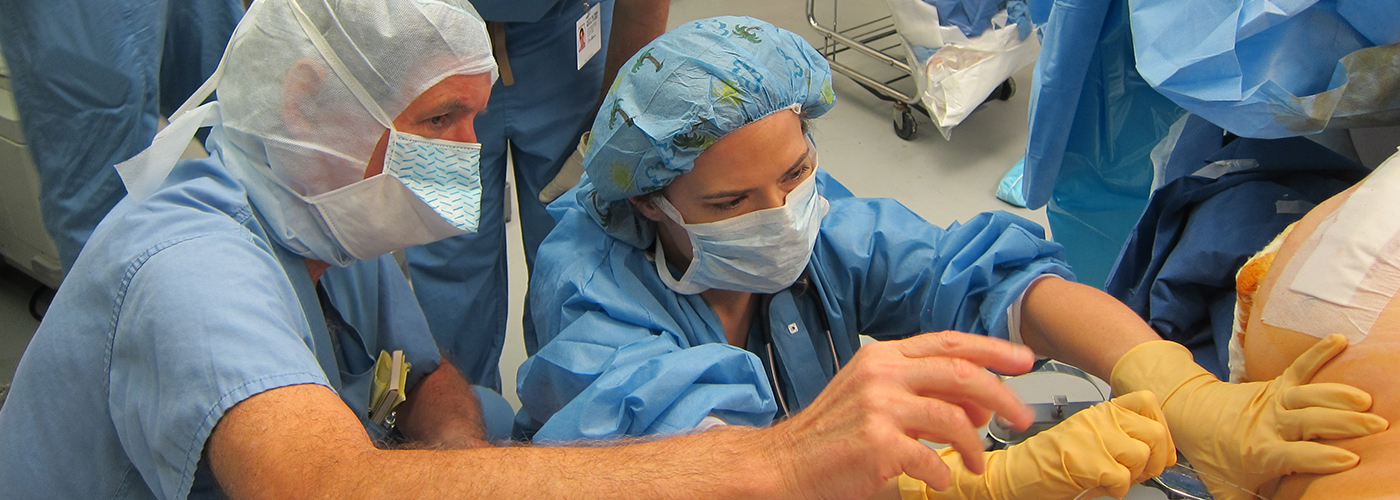Our Anesthetic Techniques
Your anesthesia care starts before the surgery begins and impacts your recovery after your procedure ends. Your anesthesiologist at HSS will be caring for you throughout each stage of your stay.
There are several types of anesthesia techniques used at HSS, but the two approaches you will most commonly hear about include:
- Regional anesthesia is the technique of taking away all feeling from the specific part of your body being operated on.
- General anesthesia affects the whole body and usually induces a loss of consciousness. A ventilator will be used to help you breathe.
Your anesthesiologist will discuss the specifics of your case and create a customized anesthetic plan that provides you with the best pain relief and recovery options.
If you have any questions or concerns about your anesthesia care before your surgery, please contact the Department of Anesthesiology, Critical Care & Pain Management for a pre-anesthetic consultation.
What is Regional Anesthesia?
Regional anesthesia is the preferred anesthetic technique for patients undergoing orthopedic surgery because it is associated with less postoperative pain and nausea, a lower incidence of blood clots, less blood loss, and a lower infection rate compared with general anesthesia. Each anesthesiologist at HSS has expertise in regional anesthesiology.
If your anesthesiologist suggests regional anesthesia for your procedure, he or she will place anesthetic medicine near the nerves that go to the part of your body that is being operated on. Your anesthesiologist may refer to this type of anesthesia as a peripheral nerve block or a regional block. In some cases, you have the option to be awake during the surgery. Your preferences can be discussed with your anesthesiologist prior to surgery.
As with any anesthetic, there are risks associated with regional anesthesia. Serious complications associated with regional blocks are exceedingly rare. Before performing a nerve block, your anesthesiologist will discuss common and uncommon risks associated with regional anesthesia at your request.
Our anesthesiologists performed over 45,000 regional anesthetics in 2017. This volume allows our anesthesiologists the opportunity to perfect their anesthetic approaches and provided tailored care based on your needs.
Anesthetic Techniques
Back to Department of Anesthesiology, Critical Care & Pain Management
